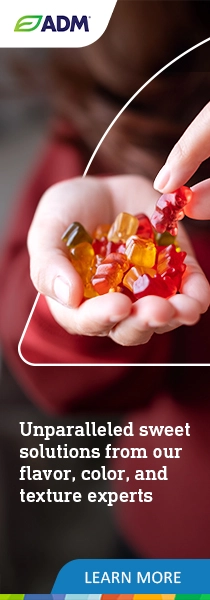
- Industry news
Industry news
- Category news
Category news
- Reports
- Key trends
- Multimedia
- Journal
- Events
- Suppliers
- Home
- Industry news
Industry news
- Category news
Category news
- Reports
- Key trends
- Multimedia
- Events
- Suppliers

15 Nov 2016 --- An investigation into the sugar content in some carbonated sugar-sweetened drinks has found “alarmingly high” levels with large variations between different flavors as well as within the same flavor group with a gap of 12 teaspoons in certain cases. The findings - published in the BMJ yesterday - come out as the global soft drinks industry is going through a prolonged period of reformulation innovating low and no-sugar options, and the UK is preparing to introduce sugar tax on soft drinks in 2018 as part of a government anti-obesity plan.
Registered charity Action on Sugar is a group of specialists concerned with sugar and its effects on health. It is successfully working to reach a consensus with the food industry and Government over the harmful effects of a high sugar diet, and bring about a reduction in the amount of sugar in processed foods.

According to the organization, the findings of the study ‘Cross-sectional survey of the amount of sugar and calories in carbonated sugar-sweetened beverages on sale in the UK’ demonstrate the amount of sugar added to CSSB could be reduced without technical issues and that there is a pressing need to do so by setting incremental sugar reduction targets and making sure the soft drinks levy does result in reduced sugar levels and not just higher costs for the consumer.
The study breaks down certain soft drinks on which flavors contain the highest sugar content. On average ginger beer (38.5±9.9 g/ 330 mL) contained the highest amounts of sugar and ginger ale (22.9±7.7 g/330 mL) contained the lowest amount of sugar.
Cola flavor contained 35.0±1.1 g/330 mL of free sugar, ranging from 32.0 to 37.3 g/330 mL. Supermarket own brands contained lower levels of sugars than branded products (27.9±10.6 vs 31.6±10.6 g/ 330 mL). As cola flavor is the most popular in Britain and because of the huge volume consumed, with an average sugar content of 35.0±1.1 g/ 330 mL, even a small reduction would have a “significant impact on sugar and calorie intake of the population”.
A tiered soft drinks industry levy is being proposed (high, low and no tax for drinks >8g, 5g to 8g, and <5 sugar per 100ml respectively) in the UK, which encourages companies to reduce the amount of sugar if they want to avoid the levy. Of the drinks surveyed 142 out of 169 need to be reduced to below 5g/100ml to avoid the levy.
An average 330ml can of soda exceeds the entire daily recommended daily intake for sugar in the UK (30 g – 7.5 teaspoons), with 55 percent exceeding the maximum UK’ s daily recommendation for sugar intake (30 g) per 330 mL can size. Also, 73 percent of the products exceeded the maximum daily recommendation for free sugars intake for a child (24 g/d).
The findings have led to calls for all sugar sweetened drinks to be reduced below 5g/100ml threshold, mandatory front of pack labeling of free sugars, public education, portion size reductions and warning labels. Many public health organizations believe this reduction in sugar content and overall consumption will reduce obesity, type 2 diabetes and dental problems, particularly in children.
“Our study shows that the majority of carbonated sugar-sweetened drinks available in supermarkets exceed the maximum daily recommendation for sugar intake for an adult (30g/d) and a child (24 g/d). It is therefore not possible to state that carbonated sugar-sweetened drinks can be consumed as part of a ‘healthy balanced diet’ even though drinks companies claim it can be, says Kawther Hashem, co-author of the BMJ Open study and researcher for Action on Sugar at Queen Mary University of London.
“Cola flavor is the most popular flavor in the UK, owing to the huge volume consumed; even small reductions would have a significant impact on free sugars and calorie intake of the population. We hope the soft drinks industry levy will make drinks manufacturers reduce the levels of sugar in their products immediately and help reduce our risk of obesity, type 2 diabetes and dental caries.”
Soft drinks are the main contributor of free sugars intake in children aged between 4 and 10, teenagers and the second main contributor in adults aged up to 64 years old. They contribute up to 30 percent, 40 percent and 25 percent of free sugars intake, respectively.
“This study illustrates the huge contribution of sugar-sweetened drinks to our sugar intake, which is directly linked to the development of obesity and type 2 diabetes. We welcome the soft drinks industry levy and particularly the incentive it’s created to companies that want to avoid the levy by reducing the sugar levels to below 5g/100ml,” says Graham MacGregor, Professor of Cardiovascular Medicine at Queen Mary University of London and Chairman of Action on Sugar.”
He goes on to praise Tesco for reducing sugar in its own brands of soft drinks to below 5g/100ml, as reported in FoodIngredientsfirst last week, and welcomes reformulation plans from Japanese brewing and distilling company, Suntory.
“Suntory has also pledged that they will reduce sugar in all their sugar sweetened drinks to below the lower band levy, this includes for instance Lucozade and Ribena. Other supermarkets and branded companies must now follow suit, particularly Coca Cola and PepsiCo, as sugar sweetened drinks are the main contributor to sugar intake, in children and adolescents,” he adds.











